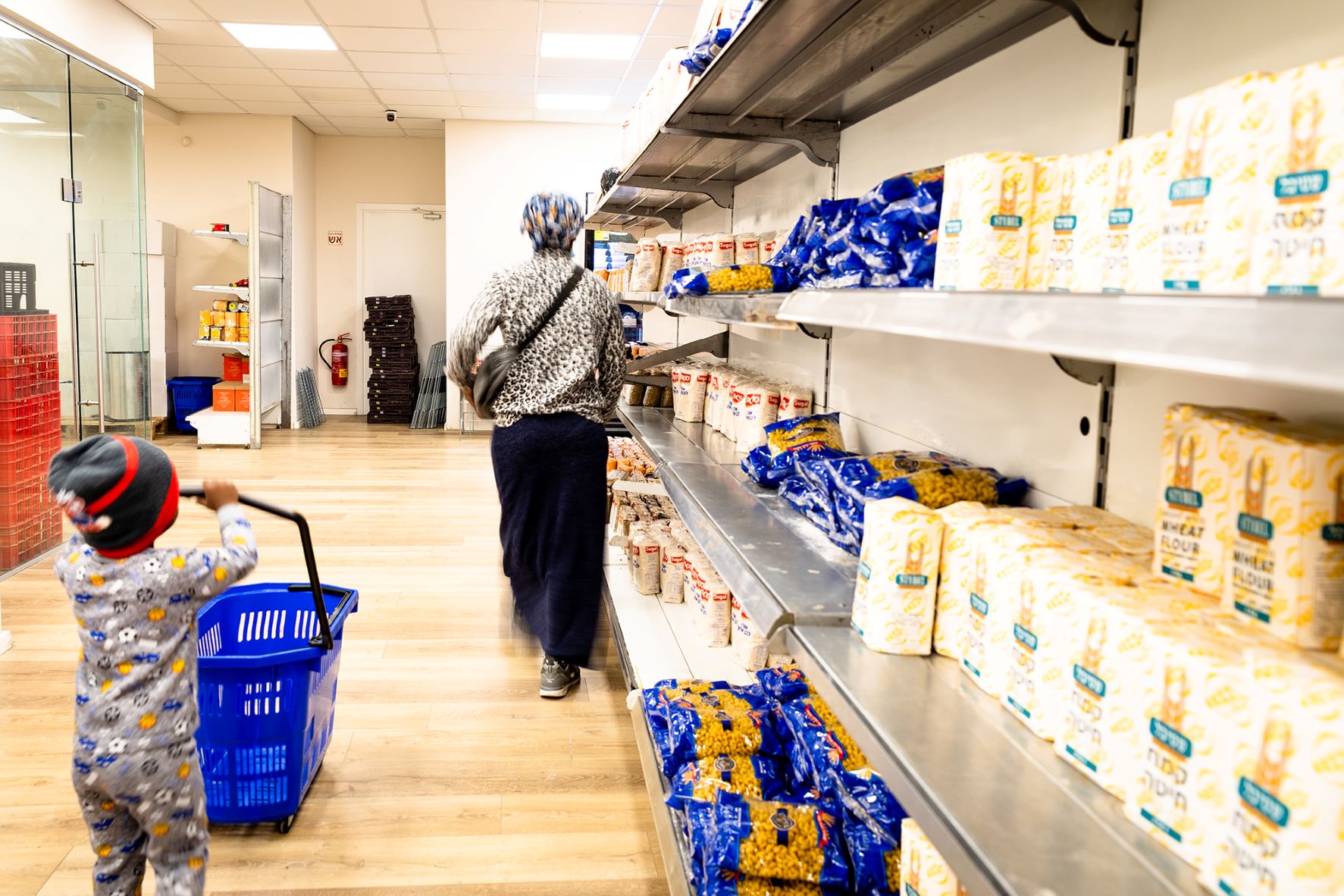$163,500
FOR DONATION
HEALTH & WELFARE / EDUCATION
PROJECT
The Extended School Day program aims to provide additional learning and enrichment for students in grades 1–3 in elementary schools in south Tel Aviv and Yafo.
OBJECTIVE
The program aims to support and enrich children from low socio-economic areas educationally and socially, and to provide them with a safe environment while their parents are at work.
IMPORTANCE
The program strengthens the foundations for future academic success and improves access to opportunity.3
THE BACKGROUND
Over the years, the Tel Aviv-Yafo Municipality has invested considerable resources in strengthening and expanding learning and enrichment programs during the school day and after-hours. The Extended School Day program was recently established to extend school hours for children in grades 1-3. Operating in elementary schools in south Tel Aviv and Yafo, the school day now finishes at 4.00 pm instead of the standard 1.00 pm or 2.00 pm.
THE NEED
All schools in Israel receive a socio-economic rank (1–9), which measures several variables. At the school level, it measures how peripheral its location is and the proportion of immigrants – their level of integration and whether they come from countries in distress. At the home level, it measures the level of education of the most educated parent and the family’s per capita income. Elementary schools in south Tel Aviv and Yafo have low socio-economic ranks: south Tel Aviv schools generally rank four or above while schools in Yafo rank lower. This reflects, in part, a student population characterized by low socioeconomic status and low cultural capital. Often, the parents of these children are in low-skilled jobs requiring long hours; consequently, they are not able to be present for their children until later in the evening, several hours after school usually finishes. For financial reasons, many of these families do not utilize the afternoon care programs or activities that are available elsewhere in the city. Children, therefore, go home alone, unsupervised, or grandparents may be involved.
The Extended School Day program is designed to:
– Support and enrich students educationally and socially;
– Support working parents;
– Improve the quality of education students receive in the afternoon hours; and
– Provide a hot and nutritious meal for a student population which, due to their difficult home environments, often come to school without eating breakfast.
In addition, after-school programs can boost academic performance, reduce risky behaviors, promote physical health, and provide a safe, structured environment for children of working parents.
THE PROJECT
The Extended School Day program is in its third year of operation and currently runs in 23 elementary schools in south Tel Aviv and Yafo. Approximately 63% of students in grades 1-3 participate in the program:
2,200 out of approximately 3,500 children. The level of participation varies between schools: some schools have a 100% participation rate while others have only 40-50%.
The schools with the highest level of need, given the low socioeconomic index of their neighborhoods, are:
– Dizengoff school in Kiryat Shalom
– Amiel Rambam school in HaTikvah
– HaHashmonaim school in Jaffa Gimel
– HaDekel school in Neve Ofer
– Hassan Arfa school in Ajami
– Achva School in Ajami
All participating schools serve a hot lunch as part of the program. The curriculum, led by the Pedagogical Division of the Municipal Division of Education and the Ministry of Education, is taught by a combination of
professional teachers and specialist educators. This is coordinated by a full-time staff member who oversees the program and ongoing teacher training. The program runs throughout the school year for over 10 months.
The average number of hours added to each class in each school is between 12 – 20 hours per week. Teachers offer a combination of classroom teaching and personalized tutoring in the core subjects of language, math, English, and science lessons. Significantly, children who participate in the Extended School Day program learn English from first grade, a full year earlier than standard schools. Next year, the program also aims to add a special technology track, which will teach coding and programming skills. These have become essential skills for the high-tech sector, a major engine, and employer in the Israeli economy.
School principals can decide which subjects to offer from the enrichment program, based on the needs of the school and the interests of the students. These include music, robotics, art, sports, dance, yoga and meditation.
THE INVESTMENT
The Tel Aviv Foundation is seeking a philanthropic investment towards the operational costs for the Extended School Day program, including teachers, food, materials, equipment, security, transportation, and maintenance.
Total Project Cost (23 schools): $7,930,000
Municipality Funding $4,170,000
Balance $3,760,000
DONATION REQUESTED Per School $163,500
Families make a nominal financial contribution for their children to participate in the Extended School Day program. Standard participation cost (Applications can be submitted for additional subsidies) 250 NIS per month. The participation cost for Arab schools in Yafo is 170 NIS per month
-
The Reuth Tel Aviv Rehabilitation Campus – Establishing the Future of Healthcare
Background More than 60,000 soldiers and civilians have been wounded since October 7 and in the subsequent Swords of Iron War, creating an enormous and unprecedented challenge for Israel’s healthcare system. Thousands of patients are receiving inpatient and outpatient rehabilitation treatment so that they can regain functional independence and return to their lives and […]
-
Providing food security to asylum seekers and undocumented individuals
The Social Grocery StoreBackround: There are approximately 30,000 asylum seekers and people without status living in Israel, most residing in the impoverished neighborhoods of South Tel-Aviv. Asylum seekers and people without status living in Israel experience ongoing financial instability, often resulting in increased vulnerabilities and exposure to many risks, such as homelessness, health and safety, food insecurity, and […]
-
Uplifting and empowering south Tel Aviv teens
The Lin FoundationLin Yavgenia Levkov – A Promising life cut short: Lin Yavgenia Levkov and her mother Irina immigrated to Israel in the height of the 1990s post-Soviet Aliyah wave. Lin’s childhood was difficult; she struggled at school and barely continued her education into high school. But this is where her story took a turn; Lin studied […]




